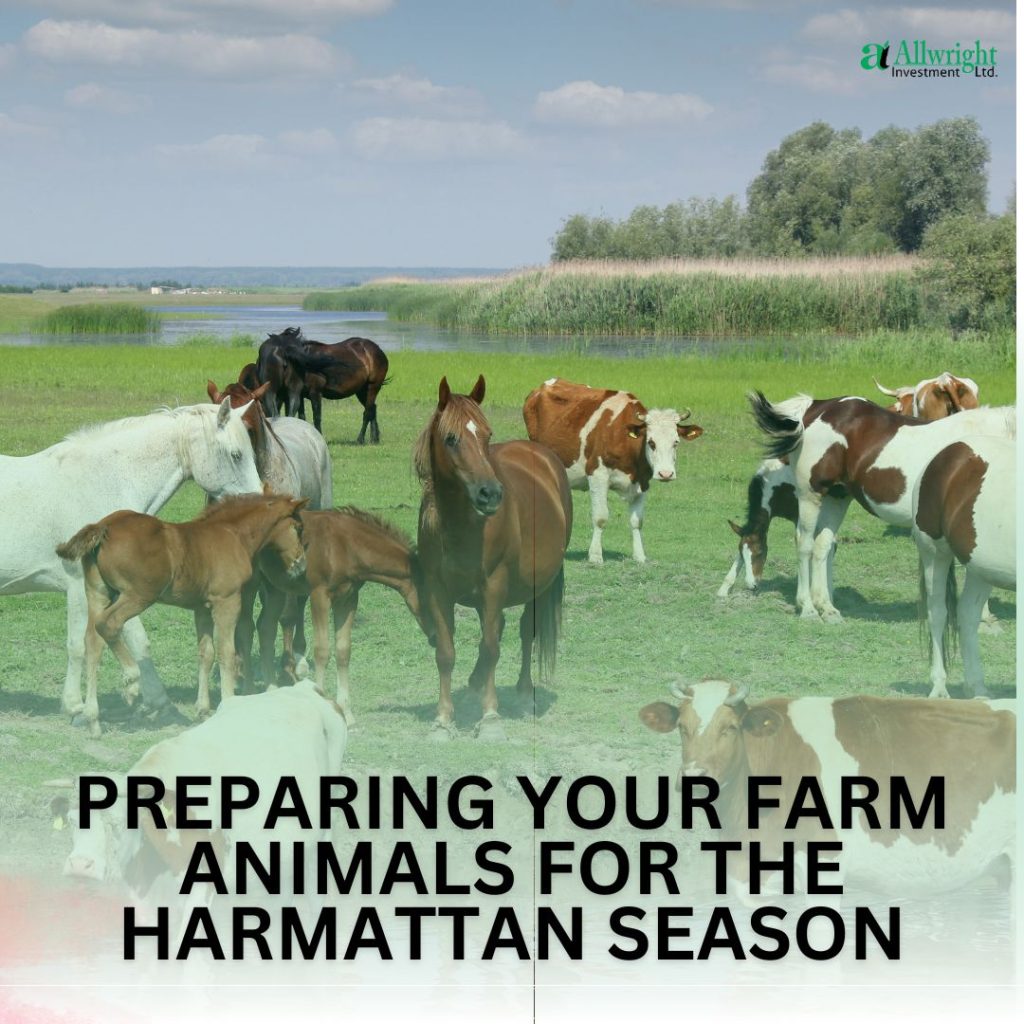
The Harmattan season, characterized by dry, dusty winds and fluctuating temperatures, can pose significant challenges to the health and well-being of farm animals. As a farmer, ensuring your livestock remain healthy during this period is crucial to maintaining productivity and avoiding unnecessary losses.
Understanding the Impact of Harmattan on Livestock
The harsh Harmattan conditions can lead to dehydration, respiratory issues, and stress in animals. Additionally, the increased exposure to dust can exacerbate existing health conditions or introduce new infections. Farmers need to take proactive measures to protect their livestock from these risks.
Essential Tips for Protecting Livestock During Harmattan
1. Ensure Proper Hydration
Dehydration is one of the most significant threats to livestock during Harmattan. The dry weather increases water loss in animals, which can quickly lead to dehydration.
Provide clean, fresh water at all times.
Use covered water troughs to prevent contamination by dust.
Add electrolytes to drinking water to boost hydration levels.
2. Provide Adequate Shelter
The fluctuating temperatures during Harmattan—hot during the day and cold at night—can stress animals. Protecting them from direct exposure to wind and dust is essential.
Construct or maintain well-ventilated shelters.
Ensure shelters are free from dust and have solid walls to block strong winds.
Use bedding materials like hay or straw to keep animals warm during cold nights.
3. Focus on Nutrition
A balanced diet helps animals build immunity and withstand the harsh weather. Poor nutrition during this period can weaken their resistance to diseases.
Provide nutrient-rich feed and supplements.
Include vitamin and mineral supplements to boost immunity.
Ensure access to quality forage to maintain digestive health.
4. Schedule Routine Health Checks
Health monitoring is critical during Harmattan to detect and address issues promptly. Respiratory infections, skin irritations, and parasites are common during this season.
Consult with a veterinarian for regular check-ups.
Vaccinate animals against common respiratory diseases.
Deworm livestock to prevent parasite infestations, which are often exacerbated by poor grazing conditions.
5. Dust Management
Minimizing the animals’ exposure to dust is essential to prevent respiratory and eye infections.
Wet the floors of shelters and nearby areas to reduce dust.
Use protective coverings for feed and water.
Keep the animals’ eyes clean by gently wiping with a damp cloth if dust accumulates.
Preparing your farm animals for the Harmattan season requires proactive steps to address hydration, shelter, nutrition, and health. By taking these measures, you can ensure your livestock remains healthy and productive throughout this challenging period.
If you need assistance or advice, Allwright Investment Ltd. is here to help. Contact us today for expert veterinary services and farm solutions tailored to your needs.
Invest in Allwright Investment Limited today!

Leave a comment
You must be logged in to post a comment.